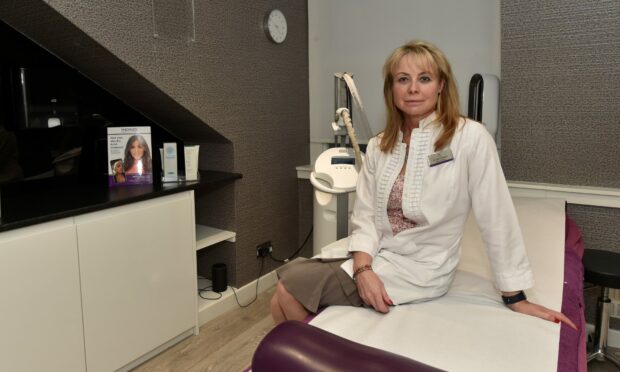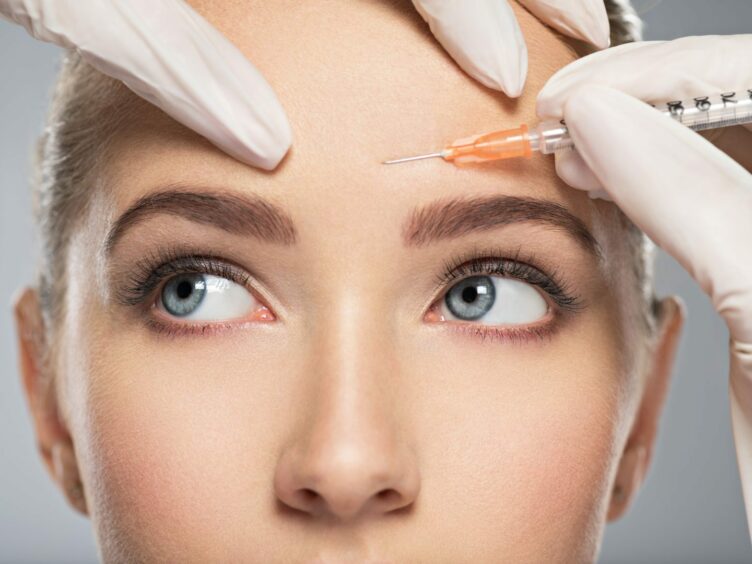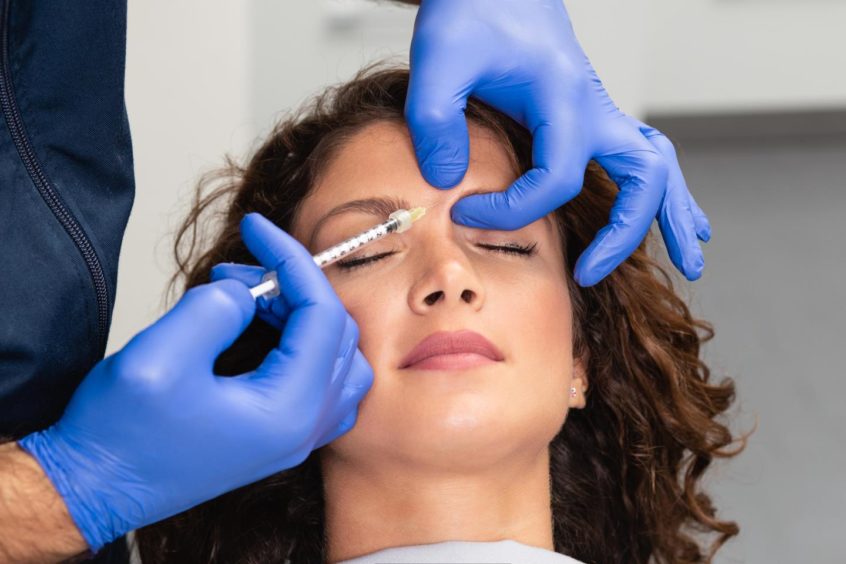Would you let your hairdresser perform open heart surgery; a quick blow-dry and a bypass for a bargain price?
If you’d rather stick to a manicure, why then would you let your beauty therapist give you Botox?
It could be argued that major surgery in comparison to lips fillers in your lunch break is slightly different, but the principle remains the same.
Wild West of Aesthetics
Injections, be it Botox or fillers remain a medical procedure – whereby you’re giving someone free rein with a needle and your face.
You wouldn’t expect your dentist to do your smear test, yet beauty therapists and hairdressers are becoming an increasingly popular option for aesthetic treatment.
A quick browse online immediately brings up a well known Aberdeen beauty business, offering anti-wrinkle injections with “any therapist” available to book.
There’s no mention of Save Face, a government-approved register for medical aesthetic treatments where practitioners and clinics must pass a rigorous 116 point assessment process.
Indeed it’s just the tip of iceberg, after University College London discovered that more than two-thirds of practitioners giving cosmetic surgery injections such as Botox in the UK are not qualified doctors.
Campaigners say the industry needs better regulation, but for Doctor Sam Robson, there also needs to be a shift in attitude.
Trust Me, I’m a Doctor
Dr Sam qualified as a GP before branching into aesthetics and now runs Temple Clinic, which offers aesthetics amongst other treatments in Aberdeen.
We caught up with her to find out why major reform is needed in a complex and largely unregulated industry.
“There’s a naïve assumption that if it wasn’t safe for beauty therapists to offer aesthetics, it wouldn’t be legal,” says Dr Sam.
“Anyone can wear a white coat and put a stethoscope round their neck, and you’ll assume they’re a doctor.
“One of the things which shocks me even 19 years on from when I trained in aesthetics, is that people will say ‘Oh, I forget you’re a doctor.’
“Why would you let me stick a needle in your face then?”
It would seem there are stricter rules regarding treatment for animals then there are for people, as the law dictates you cannot inject an animal unless you are a vet.
“Yet the dustbin man could inject your face if you let him,” says Dr Sam.
“For as long as people perceive injectables as a beauty treatment, it will continue to be offered by beauty therapists.
“I remember there was a stunt in a shopping centre with a pop-up semi-permanent makeup artist.
“They had the white gloves, the coat and just they were hovering over someone’s face ready to go.
At the last second they said ‘I’ve never done this before.’
“You just assume the person is not only regulated but also trained to deal with any problems which may arise – be that acute anaphylaxis or a blood vessel where you didn’t quite expect it.
“Ultimately people don’t think about stuff going wrong though.”
Botox Blunders
Sam is a firm believer that there are risks associated with everything in life and regardless of how many precautions you take, the unforeseen can happen.
But how it is dealt with, particularly in the world of aesthetics, is vital.
Unfortunately for Sam, she is often the person called upon when things haven’t gone to plan elsewhere.
“When something goes wrong, time is of the essence,” says Dr Sam.
“I think a mandatory level of insurance would weed out a lot of cowboys because no insurers would provide an appropriate level of insurance to somebody who is inherently unsafe
“Despite my 32 years experience in medicine, I am obliged to carry £5million of insurance in order to reassure the profession that I have sufficient indemnity in place should something go wrong.”
“Doctors, dentists and nurses, but for as long as it’s legal for beauty therapists to offer aesthetics, there will always be people looking to make a quick buck.”
Sam will often see clients who have no idea what has been injected into their face in the past.
“Unless you are a dermatologist or plastic surgeon, you aren’t actually allowed to do aesthetics in the US or the rest of Europe.
“I will always be able to say I’m a doctor, because that was my training.
“Unfortunately because aesthetic medicine is a relatively new area of specialisation, it is not currently an area that has legislation in place to demand that doctors undertaking aesthetic procedures have a licence to practice.
“This means that if a doctor has been struck off the GMC medical register and is not considered fit to practise, they can still promote their aesthetics services as being performed by a doctor.”
Scottish Government Pledge
The aesthetics industry has already come to the attention of the Scottish Government, who have pledged new regulations on non-surgical cosmetic procedures.
If and when new legislation comes into effect, it could restrict who can administer dermal fillers.
It could also update existing legislation to license businesses that provide a wider range of non-surgical cosmetic procedures or body modifications which are currently unregulated.




